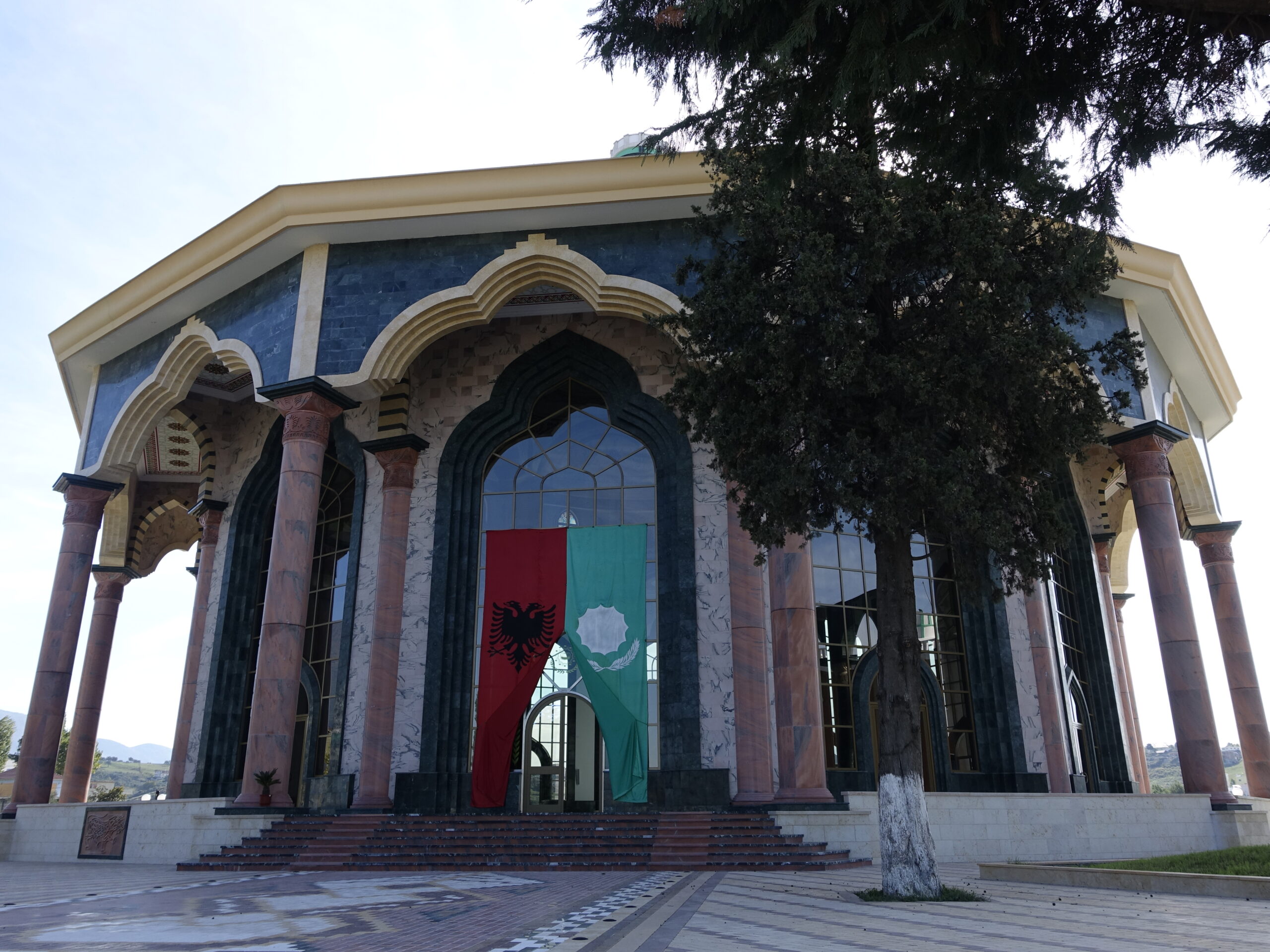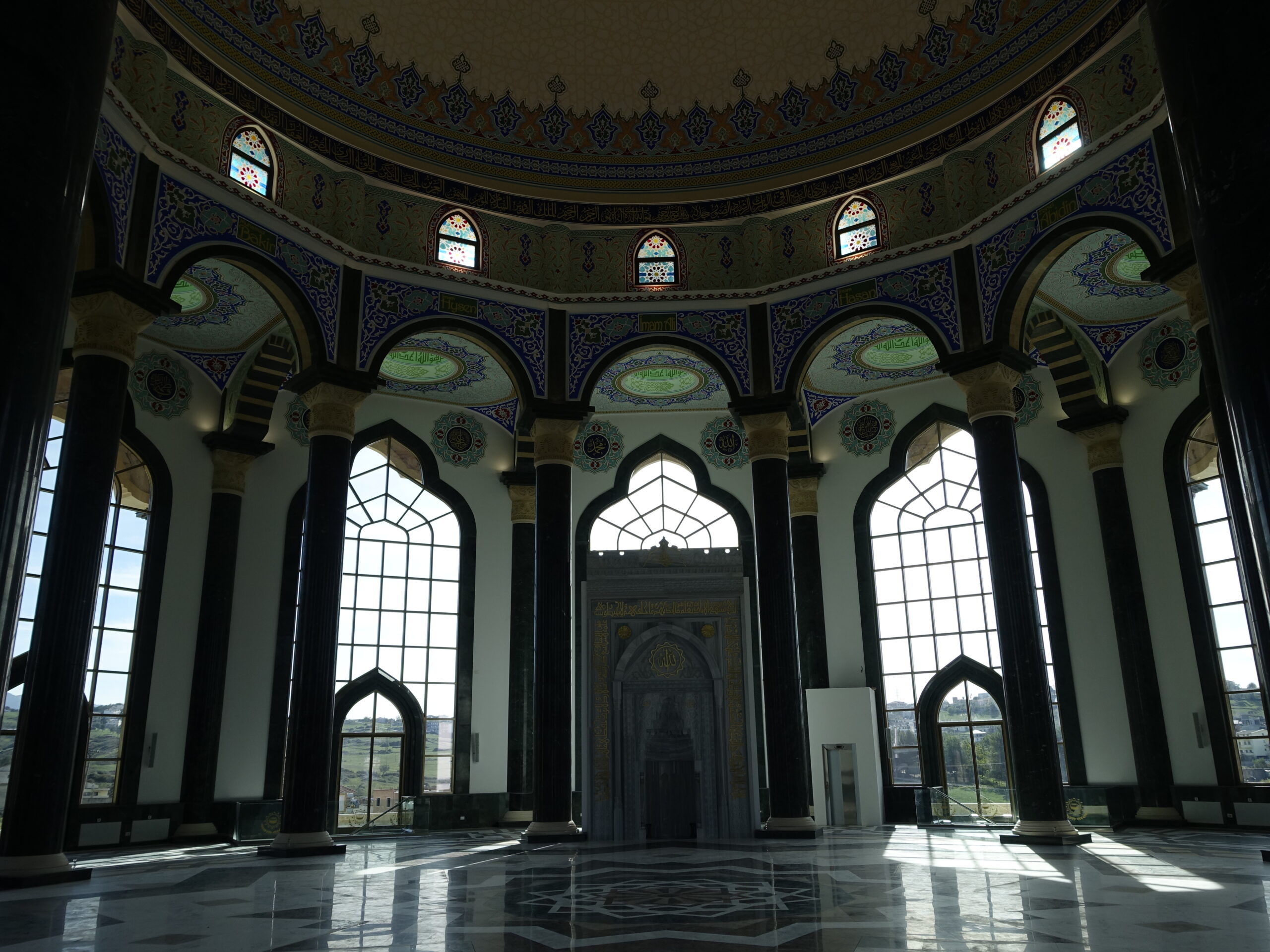On September 21st, The New York Times came with the surprising news that the Prime Minister of Albania had come up with a new proposal – what seemed his latest pet project: to establish a novel Bektashi state within Albania’s capital Tirana. The Bektashi community is a transnational Islamic Sufi mystic order, which has held its World Headquarters in Albania since the end of the 1920s or beginning of the 1930s.
A day later, the Prime Minister formally presented the idea of a Bektashi state at the United Nations General Assembly. By presenting it in two highly regarded global platforms — The New York Times and the UN Assembly — the proposal seemed to gain credibility. These outlets not only lent legitimacy to the notion of an independent Bektashi state but also communicated it to Albania’s international allies and domestic audiences, hinting at a process that could garner international support and recognition.
Striving to Grasp the Meaning of a Political Idea
Initially, many people interpreted Rama’s proposal as a joke; for others, it represented another absurd scandal unleashed by a Prime Minister known for generating crises only to resolve them himself — at least within the realm of imagination. Yet, those who initially dismissed the news as a gimmick soon realized that the article in The New York Times was indeed real, as it was then subsequently confirmed by the speech at the United Nations. Observers familiar with the Prime Minister’s tendency to create self-made scandals noted the bizarreness of the proposal, pushing societal taboos to their limits, threatening state sovereignty and religious harmony.
Since the creation of an independent Albanian nation-state (1912) – but particularly after the fall of communism (1991) — the relationship between religious communities and the Albanian state has gone through very different stages. Yet no serious political movement in Albania has ever supported the establishment of a religious state or even a religious statelet on Albanian territory. Albanian intellectuals and politicians, especially those from the National Awakening period, have always regarded the fusion of national identity with a specific religion as detrimental to Albania’s national interests. The current Constitution of the Republic of Albania, in Article 1, paragraph 2, states that the territory of the Republic is indivisible. Article affirms the state’s neutrality toward religious beliefs, obliges the state to recognize the equality of religious communities, requires religious communities to respect the Albanian state, and acknowledges the autonomy of each community to govern and administer itself as a legal entity. In addition, the constitution gives no power to the Prime Minister to propose or take the initiative for a new state within the Republic.
The characteristics of this proposed statelet were later elaborated upon in the media. It was envisaged to encompass the territory surrounding the current Bektashi World Headquarters, located in a neighbourhood of Tirana that straddles urban and suburban areas, informal with informal settlements. This would form the core, the Vatican being the model. One of the key arguments put forward by Rama in his UN speech is that the Bektashi represent a moderate form of Islam, implying it is the ‘right’ kind of Islam. In Albania, it was also emphasized that they played an important role in shaping Albanian national identity and contributing to the creation of the nation-state. In fact, the two narratives worked in tandem, one for international consumption, highlighting cosmopolitan themes of ‘peace’ and ‘love’, while the other was primarily meant for domestic audiences, centered on national awakening and identity.
The broader public has tried to make sense of this situation in three ways. The ‘official’ line, taken by some analysts, is that the proposal is meaningful and welcome. Another approach is more critical in nature, pointing at the Prime Minister’s inclination to treat the state as private fiefdom, citing recent initiatives such as the Meloni-Rama agreement, the hand-over of land to Donald Trump’s son-in-law Jared Kushner, and similar plans favouring clientelist and oligarchic networks. The third response, largely shared and articulated on social media, mixes geopolitical concerns with conspiracy theories. In reaction to these responses, the Prime Minister dismisses criticisms as rooted in ignorance and resentment, deflecting responsibility for the public’s lack of information, even as his proposal comes close to violating the Albanian constitution. Faced with criticism over his proposal, he frames opponents as malicious, ignorant, and anti-civilization. His rhetoric, laced with conspiratorial remarks, aims to intimidate and discredit critics.
Meanwhile, after his UN speech, Rama seems to have somehow change his mind.
In his latest statements, he has used the term (sovereign) ‘entity’ instead of ‘state’, justifying this entity as a safeguard against an alleged existential threat to Bektashism, a claim shrouded in vagueness and ambiguity. Although he assures that the plan will be realized, he does not seem to be in a hurry at all, introducing an element of suspense by deferring the creation of a Bektashi state to an undefined moment in the future. This narrative strategy blends defensive posturing, a clear disdain for critics, and elements of mystery, leaving the public in anticipation while reinforcing the idea of an undisclosed crisis threatening the Bektashi order’s continuity.
Trickery as Absurdity: The Trickster and the State as Theatre
To conclude, I would like to employ a few classic concepts from anthropology that may throw light on the apparent absurdity of Rama’s initiative, which is part of the broader phenomenon of manufactured crises created by people in a position of power. I interpret this behaviour as a kind of staging a spectacle. The kind of state that accepts spectacles as a vital function of statehood can be described as a ‘theatre state’, a concept introduced by Clifford Geertz in a very different context in another part of the world. Using and recycling this idea might help us understand and explore how statecraft takes on a new shape when dominated by a single political figure, such as Rama, particularly in a post-truth environment where political messages become increasingly surreal, intentionally fragmented and difficult to fathom by the public.
The Prime Minister of Albania indeed reminds me of a trickster. Hence, my second proposal is to view the trickster — a character well-known in political anthropology — as the key figure in this theatrical state that Albania is. He thrives in liminal spaces and time zones, Albania providing an excellent environment for this as the country has always occupied a kind of liminal geopolitical position, also recently, during its three-decade transition period. When the political order fails to progress as promised — toward democracy, for instance — and instead veers toward oligarchy, the trickster and his tricks become the central features of political life.
These two concepts, the ‘theatre state’ and the ‘trickster’ can help us make sense of a project that has appeared quite absurd from a legal and political standpoint. It is only in the context of a theatre of the absurd that the idea of a sovereign Bektashi state can be entertained, of course in combination with rather baffling and ‘spectacular’ narratives — designed to divert attention away from other pressing issues.
Further Reading:
Bardhoshi, Nebi. 2024. Shteti Bektashi në botën e shtetit teatër – Asgjë nuk besohet, gjithçka është e mundur. In: Nyje: Gazeta Elektronike e Kamzës (nyje.al), 28 September 2024.
Geertz, Clifford. 1980. Negara: The theatre state in nineteen-century Bali. Princeton: Princeton University Press.
Thomassen, Bjørn. 2014. Liminality and the modern: Living through the in-between. Aldershot: Ashgate.
Szakolczai, Arpad. 2022. Post-truth society: A political anthropology of trickster logic. London: Routledge.

